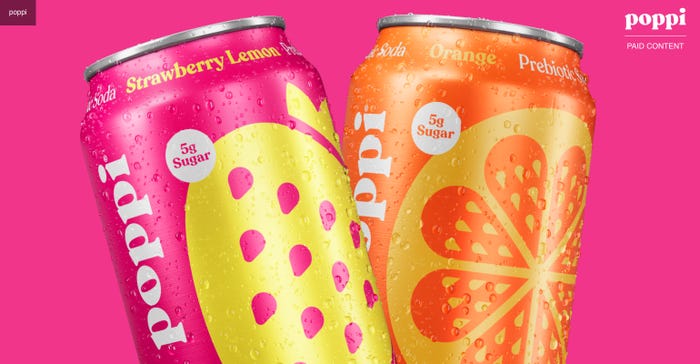.png?width=700&auto=webp&quality=80&disable=upscale)
Secret Shopper: How does plant-based protein compare to whey for muscle building?Secret Shopper: How does plant-based protein compare to whey for muscle building?
Although whey protein dominates the supplement aisles, pea and other plant-derived proteins are beginning to challenge it. Find out what team members need to know about the differences.
November 14, 2024

When muscle growth is the goal, many consumers seek out protein supplements. Products featuring animal-derived whey protein are particularly popular, given whey’s reliable, research-backed efficacy for muscle protein synthesis.
From mid-2023 to this past July, sales of whey-based powders, ready-to-drink beverages and other offerings surpassed $535 million, SPINS reports. By comparison, products made with pea protein—the top-selling plant-based protein by a long shot—reeled in only $57.4 million.
However, while whey protein may still dominate the supplement aisles, pea and other plant-derived proteins have gained massive momentum. Plant-based product selection, quality and innovation have improved greatly in in recent years. Meanwhile, more consumers are seeking out more plant-based foods, beverages and supplements, whether for dietary, nutritional, sustainability or ethical reasons.
All signs point to this category’s continued rise, meaning shoppers will pepper natural products retailers with more questions. We sent our Secret Shopper to test one store’s knowledge of plant-based protein supplements and how they compare to whey-powered products.
Natural Foods Merchandiser: How do plant-based protein supplements stack up against whey protein for muscle building?
Retailer: I think most of them do pretty well! Whey probably works a little better than plant-based proteins for muscle growth. But also, a lot of people just prefer the taste of whey over plant-based—and any powder that you actually use is going to work better than one you don’t, right?
Natural Foods Merchandiser: That’s true.
Retailer: That being said, I actually think most of the plant-based stuff these days tastes pretty good. So, back to your original question, I’d say that if you find a plant-based powder you like taste-wise, it should work about as well as a whey powder.
Natural Foods Merchandiser: That makes sense. Are any particular plant-based proteins superior to others? I see a lot of pea and brown rice proteins, so are those the best?
Retailer: Good question. Yeah, those are probably the most common. A lot of the plant-based products are blends of different sources, so you might get a little pea, a little rice and maybe some millet or bean protein. But I’m not sure how the different plants compare to each other, in terms of how well they work for muscles.
How did this retailer do?

Chad Kerksick, director of the Exercise and Performance Nutrition Laboratory at Lindenwood University in St. Charles, Missouri, and president of the International Society of Sports Nutrition
Our expert educator: Chad Kerksick, who holds a doctorate in exercise, nutrition and preventative health, is the director of the Exercise and Performance Nutrition Laboratory at Lindenwood University in St. Charles, Missouri, and president of the International Society of Sports Nutrition.
Overall, this retailer did well. We actually published a review article in Nutrients on this topic. We highlighted that, when taken over several weeks along with a suitable resistance training program, plant proteins and animal proteins (like whey protein) perform similarly in terms of promoting muscle growth. It is true that animal proteins have higher amounts of total amino acids, essential amino acids and leucine—an amino acid particularly important for building proteins. But the research seems to suggest that as long as someone is getting enough amino acids to support the body’s needs to build and rebuild proteins, the source of where they come is less important.
As a class of proteins, plant proteins have less amino acids and, more importantly, less of the essential amino acids (including leucine) when compared to animal proteins. Furthermore, the digestibility of plant proteins is typically lower than animal proteins.
What this means practically is that someone must consume more of a plant protein to get the necessary amounts to trigger all the good things we want from our protein supplements. This can become important to some people who don’t like to consume larger servings sizes or would like to consume less calories overall, maybe as part of a weight loss program. All told, animal proteins are more “efficient” in terms of delivering the needed amino acids.
Currently, little evidence is available to tell us if one plant source is better than the other. Because animal proteins, like whey protein, have reigned supreme for so long, much of the research efforts to date have focused upon seeing how well plant proteins stack up to animal proteins. Maybe future research will provide clarity, but right now that is not a question that can be answered clearly.
Finally, in terms of taste, this is a subjective area, but overall, high-quality sources of whey protein typically mix well and can be flavored into a wide variety of flavors while some sources of plant proteins can retain a nutty, grainy or earthy taste to them. Whether you like that or not, it’s something a consumer must consider.
About the Author
You May Also Like

.png?width=700&auto=webp&quality=80&disable=upscale)

